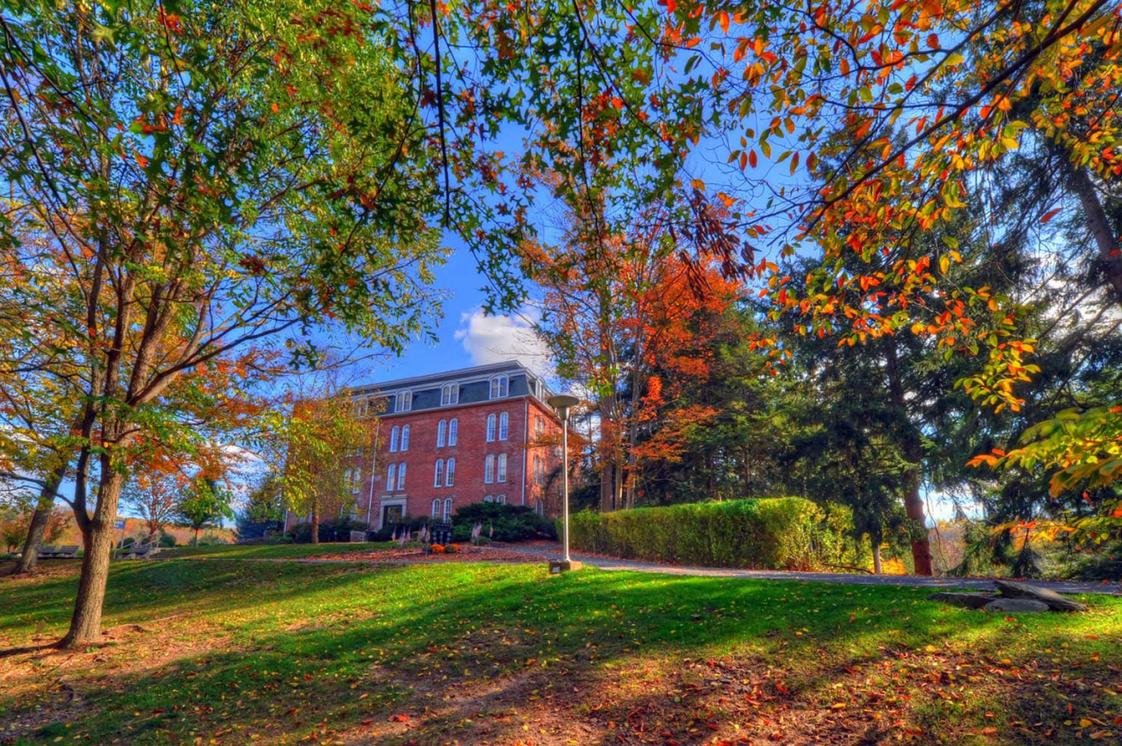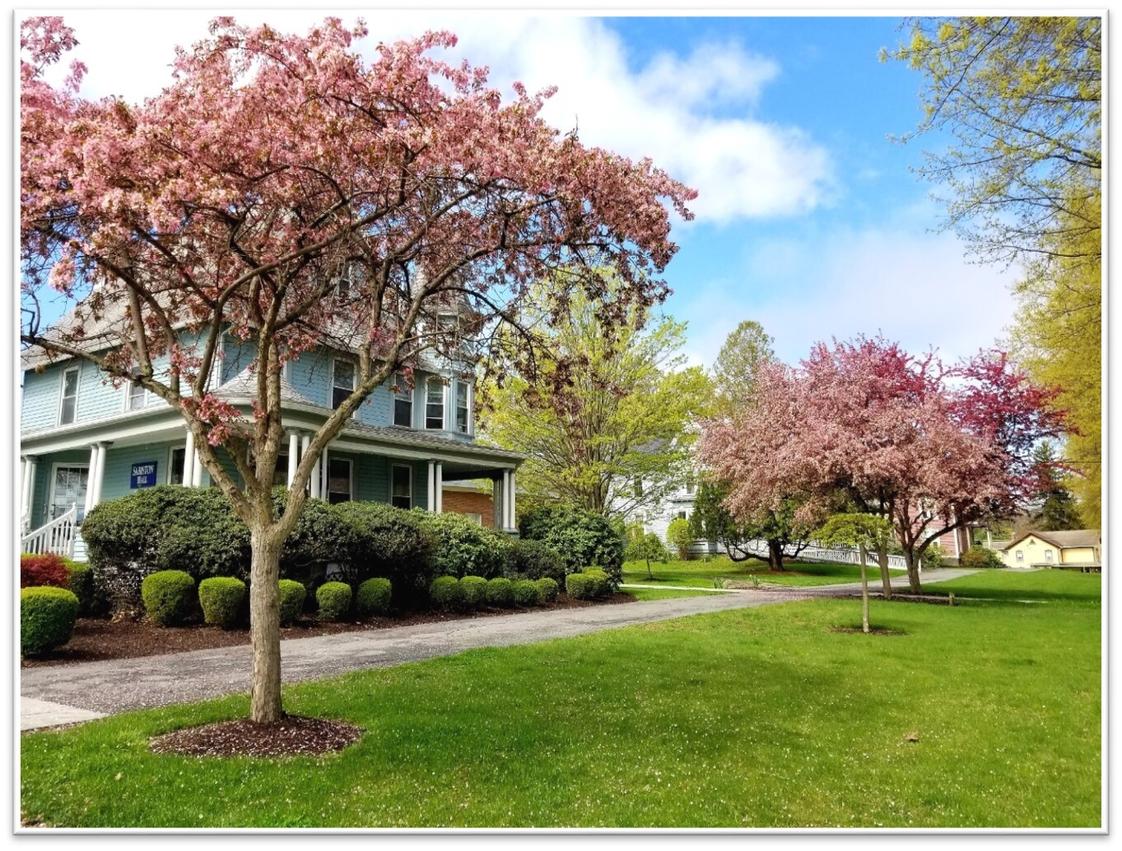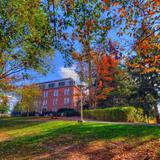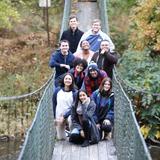- Keystone College is a fully accredited, independent, private college committed to helping all students attain their full potential. To achieve this goal, Keystone provides excellent instruction, close student-faculty relationships, personal attention, and individualized support services.
School Highlights
Keystone College serves 650 students (62% of students are full-time).
The college's student-teacher ratio of 3:1 is lower than the state community college average of 15:1.
Minority enrollment is 27% of the student body (majority Black and Hispanic), which is less than the state average of 48%.
Quick Facts (2026)
- Enrollment: 650 students
- In-state tuition: $34,000
- Out-state tuition: $34,000
- Acceptance Rate: 79%
- Student-teacher ratio: 3:1
- Minority enrollment: 27%
- Source: Verified school update
Upcoming Events
Top Rankings
Keystone College ranks among the top 20% of public schools in Pennsylvania for:
Category
Attribute
Programs offered
School Overview
The teacher population of 215 teachers has stayed relatively flat over five years.
Keystone College
(PA) Community College Avg.
Carnegie Classification
Baccalaureate/Associate's Colleges: Mixed Baccalaureate/Associate's
Not applicable, not in Carnegie universe (not accredited or nondegree-granting)
Institution Level
4 or more years
At least 2 but less than 4 years
Institution Control
Public
Private not-for-profit
Total Faculty
215 staff
59 staff
Number of Programs Offered
40
29
School Calendar
Student Body
The student population of Keystone College has declined by 53% over five years.
The student-teacher ratio of 3:1 has decreased from 12:1 over five years.
The Keystone College diversity score of 0.44 is less than the state average of 0.68. The school's diversity has declined by 5% over five years.
Total Enrollment
650 students
461 students
Student-Teacher Ratio
3:1
15:1
# Full-Time Students
400 students
325 students
# Part-Time Students
250 students
136 students
# Enrollment Undergraduate
156 students
298 students
# Full-Time Undergraduate Students
650 students
326 students
# Full-Time Graduate Students
19 students
10 students
# Part-Time Undergraduate Students
312 students
151 students
# Part-Time Graduate Students
43 students
12 students
Total Dormitory Capacity
510 students
330 students
% American Indian/Alaskan
n/a
n/a
% Asian
1%
5%
% Hispanic
8%
11%
% Black
9%
15%
% White
73%
52%
% Hawaiian
n/a
3%
% Two or more races
n/a
3%
% Non Resident races
n/a
1%
% Unknown races
9%
10%
Diversity Score
0.44
0.68
College Completion Rate (Students who graduate in less than 4 years)
n/a
60%
College Completion Rate (Students who graduate in 4 years or more than 4 years)
2.07%
36%
Average Graduate Earnings (10 Years)
$33,700
$34,900
Tuition and Acceptance Rate
The public in-state tuition of $34,000 is more than the state average of $11,723. The in-state tuition has grown by 27% over four years.
The public out-state tuition of $34,000 is more than the state average of $15,818. The out-state tuition has grown by 27% over four years.
In-State Tuition Fees
$34,000
$11,723
Out-State Tuition Fees
$34,000
$15,818
Tuition Notes
Tuition, fees, and room and board included in the total costs. Tuition itself is $16500.
% Students Receiving Some Financial Aid
92%
88%
Median Debt for Graduates
$25,990
$13,000
Median Debt for Dropouts
$6,500
$6,260
Acceptance Rate
79%
78%
SAT Total Avg.
1,415
1,365
SAT Reading
475
460
SAT Math
510
470
SAT Writing
430
435
ACT Total Avg.
71
61
ACT Composite
24
20
ACT English
25
20
ACT Math
22
21
ACT Writing
n/a
7
Sports
Total Sports Offered
12 sports
Sports
BaseballBasketball
CheeringCross Country
FencingField Hockey
FootballSoccer
SoftballTrack and Field
VolleyballWrestling
Extracurriculars
Total ExtracurricularsTotal Extra-curric.
10 extracurriculars
ExtracurricularsExtra-curric.
Club or Organization:
Arts and Music Programs:
Bee KeepingBlack Student Union
Environmental ClubFencing
Fishing ClubOutdoors Club
Arts and Music Programs:
Choral groupsGlass Blowing
Performance MusicPottery
Source: 2024 (or latest year available) Integrated Postsecondary Education Data System (IPEDS) , School Administrators
School Notes
- School Mascot: Kc
- Keystone Academy was originally chartered by the Commonwealth of Pennsylvania in 1868, with instruction beginning the following year in the local Baptist church in Factoryville. In 1870, ground was broken on the current site for the Academy's first building, Harris Hall, named after John Howard Harris, first president of Keystone. Harris Hall continues to serve Keystone College today. For over 65 years, the Academy served the secondary educational needs of the region admirably. Keystone Academy was rechartered as Scranton-Keystone Junior College in 1934. Ten years later, the name of the College was shortened to Keystone Junior College, and in 1995 to its present form, Keystone College. Today, with its career-oriented liberal arts in place, Keystone College is a leader in education. In 2000, the College awarded its first baccalaureate degree and announced the receipt of its first million dollar gift. January 2001 marked the opening of the College's newest residence hall, Keystone Commons, the first new residence hall built on campus since Moffat Hall in 1970. Currently, the College offers 13 bachelor's degrees, 20 associate degrees and enrolls a diverse student body from throughout the U.S. and more than 14 countries. The College also participates in Division III athletics, fielding 14 men's and women's teams. Keystone offers bachelor of science degrees in accounting, biological science, business, criminal justice administration, early childhood education, elementary education, environmental resource management, forensic biology, human resource management, information technology, sport and recreation management, and teaching, and bachelor of arts degrees in communication arts and humanities, and visual art. The college is accreditation by the Middle States Association of Colleges and Secondary Schools.
Profile last updated:
Frequently Asked Questions
How much does Keystone College cost?
Keystone College's tuition is approximately $34,000 for In-State students and $34,000 for Out-State students.
What is the acceptance rate of Keystone College?
The acceptance rate of Keystone College is 79%, which is higher than the state average of 78%.
What sports does Keystone College offer?
Keystone College offers 12 interscholastic sports: Baseball, Basketball, Cheering, Cross Country, Fencing, Field Hockey, Football, Soccer, Softball, Track and Field, Volleyball and Wrestling.
What is Keystone College's ranking?
Keystone College ranks among the top 20% of community college in Pennsylvania for: Most Programs Offered.
Recent Articles

Community College vs. Bootcamps for Tech Careers in 2026
Community college vs. bootcamps in 2026. Compare cost, outcomes, credentials, and hiring trends to choose the best tech career path.

How to Build a Class Schedule That Fits Your Life (Spring 2026)
Learn how to build a class schedule that fits your life with expert tips, updated strategies for Spring 2026, and practical planning tools for students and families.

Top 10 Jobs for Community College Graduates in 2026
Meta Description: Discover high-demand jobs for community college graduates, with current salary trends, costs, and career pathways.
















